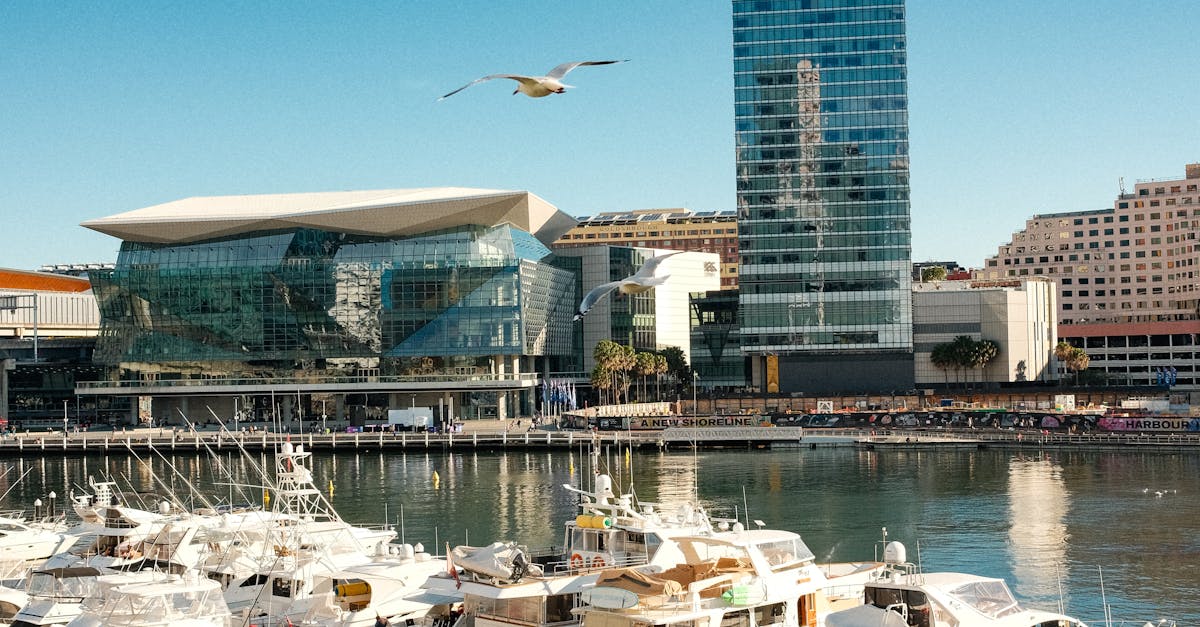
Table Of Contents
The Influence of Mobile Optimization
Mobile optimisation plays a crucial role in determining local ranking for businesses. With an increasing number of users accessing information via smartphones, Google prioritises websites that provide a seamless mobile experience. Factors such as page load speed, mobile-friendly design, and easy navigation contribute significantly to how well a site performs in local searches. Businesses that adapt their online presence to cater to mobile users can see notable improvements in their visibility.
Moreover, mobile optimisation directly impacts Local SEO efforts. When users perform location-based searches, Google favours sites that are not only responsive but also relevant to their immediate surroundings. This underscores the importance of ensuring that local businesses have mobile-friendly websites that display accurate contact details and location information. By doing so, businesses can enhance their chances of appearing in the local search results, ultimately driving more traffic and potential customers.
Responsive Design and its Effects on Local Searches
Responsive design plays a crucial role in influencing local searches. With a significant number of users accessing information on their mobile devices, Google prioritises sites that seamlessly adapt to various screen sizes. A well-optimised mobile experience ensures improved site performance, leading to better engagement and lower bounce rates. This adaptability is not just about aesthetics; it directly impacts the user experience, which is a critical ranking factor for local SEO.
Moreover, having a responsive design can enhance the visibility of local businesses in search results. As Google increasingly emphasises location-based queries, websites that provide a smooth browsing experience on mobile devices are more likely to appear in local search listings. This shift reinforces the importance of investing in responsive design as part of a broader local SEO strategy. Enhanced mobile usability can ultimately attract more potential customers who rely on their smartphones to make informed decisions in their local area.
Local Content Creation
Creating tailored content that reflects the unique aspects of a community plays a crucial role in local SEO. This involves understanding the interests, needs, and characteristics of the local audience. Businesses can enhance their visibility by producing blogs, articles, or resource guides that specifically address local events, news, or cultural points of interest. Incorporating local keywords into this content helps search engines connect the business with relevant local searches.
In addition, engaging with local references such as popular landmarks or community issues can strengthen the connection between the business and the audience. It is beneficial to showcase local partnerships or customer stories that resonate with the community. By doing so, businesses not only enrich their content but also foster a sense of loyalty among local customers, consequently boosting their local SEO efforts and improving overall online presence.
Crafting LocationSpecific Material that Resonates
Creating content that connects with local audiences is essential for effective Local SEO. Businesses should focus on producing material that reflects the unique characteristics and culture of their specific area. This may include addressing local events, landmarks, and community issues that resonate with residents. Including relevant information helps establish a connection with the audience, demonstrating a genuine commitment to the community.
Incorporating local keywords strategically within the content is vital for enhancing Local SEO. These keywords should align with what potential customers are searching for, ensuring the content is easily discoverable. Additionally, using imagery and references to local attractions can further engage users, making them more likely to interact with the brand. A tailored approach not only improves search visibility but also fosters loyalty among local customers.
Social Media Signals
Social media platforms play a significant role in enhancing a business's visibility in local search results. Engaging with customers through these channels fosters community relationships and encourages user-generated content. This engagement contributes to a brand's reputation and can indirectly influence local SEO by generating organic traffic to a website and boosting overall brand awareness.
Regular activity on social media can signal to search engines that a business is relevant and active in its community. Sharing location-specific posts, promotions, and events helps establish a stronger local presence. These social signals may not directly impact rankings but contribute to a comprehensive local SEO strategy by increasing engagement and visibility among potential customers in the vicinity.
Leveraging Social Platforms to Boost Local Ranking
Social media platforms play a significant role in boosting local ranking on search engines. Businesses can engage with their communities through regular posts, updates, and interactions. This not only fosters relationships with local customers but also signals to search engines that the business is active and relevant within its local area. The frequency of interactions, such as likes and shares, can enhance visibility and positively impact Local SEO efforts.
Moreover, incorporating location tags in social media content can further enhance local relevance. When users search for businesses in their area, they often rely on social media recommendations and local business profiles. This helps to create a strong online presence that complements a business's overall digital marketing strategy. Consistently providing valuable content and engaging with local audiences can ultimately bolster both social media influence and Local SEO performance.
FAQS
What factors does Google consider for local ranking?
Google considers various factors for local ranking, including relevance of content, distance from the searcher, and prominence of the business. Factors like mobile optimisation, local content creation, and social media signals also play a significant role.
How important is mobile optimisation for local searches?
Mobile optimisation is crucial for local searches as a significant number of users search for local information using their mobile devices. A responsive design enhances user experience and can positively affect local rankings.
What is location-specific content, and why is it important?
Location-specific content refers to material tailored to a specific geographic area, such as local events, news, and landmarks. It is important because it helps Google understand your relevance to local users, improving your chances of appearing in local search results.
Can social media affect my local ranking on Google?
Yes, social media can influence your local ranking. Active engagement on social platforms can enhance your visibility and drive traffic to your website, which can signal to Google that your business is relevant and authoritative in your area.
How can I improve my local ranking on Google?
To improve your local ranking, focus on optimising your website for mobile, create high-quality location-specific content, maintain an active presence on social media, and ensure your business listings are accurate and consistent across online directories.

















































